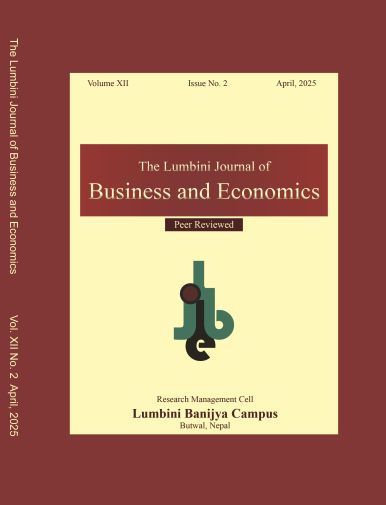Assessing the Economic Impact of Climate Change on the Indian Middle Class
DOI:
https://doi.org/10.3126/ljbe.v12i2.77407Keywords:
Climate change, economic impact, middle-class, budget, sustainabilityAbstract
Purpose: This study examines how climate change impacts the economic stability of Indian middle-class households by analyzing climate-driven fluctuations in their monthly budgets. It explores rising expenditures linked to climate-related needs, including heightened demand for comfort products and escalating healthcare costs.
Methods: Adopting a mixed-methods design, the research integrates a structured survey of 124 respondents (purposively sampled across income categories) from Siddhartha University Kapilvastu with qualitative insights from open-ended responses to assess financial stress and adaptive strategies.
Results: Findings reveal a surge in purchases of energy-intensive appliances (e.g., air conditioners, heaters) as households combat temperature extremes, alongside rising healthcare expenses from climate-induced ailments like respiratory illnesses. These adaptive expenditures strain budgets, often forcing reliance on loans and EMIs. The study underscores climate change’s direct economic burden, highlighting significant budget pressures from climate-driven consumption and healthcare costs.
Conclusion: Climate change directly impacts the financial well-being of Indian middle-class households by increasing their expenditure on consumer durables, electricity bills, healthcare, etc. To maintain comfortable living conditions, households often purchase goods beyond their financial capacity, which results in reliance on personal loans and EMIs. The study concludes that the economic burden of climate change on middle-class households is substantial, highlighting the link between climate impacts the rising household expenditures.




